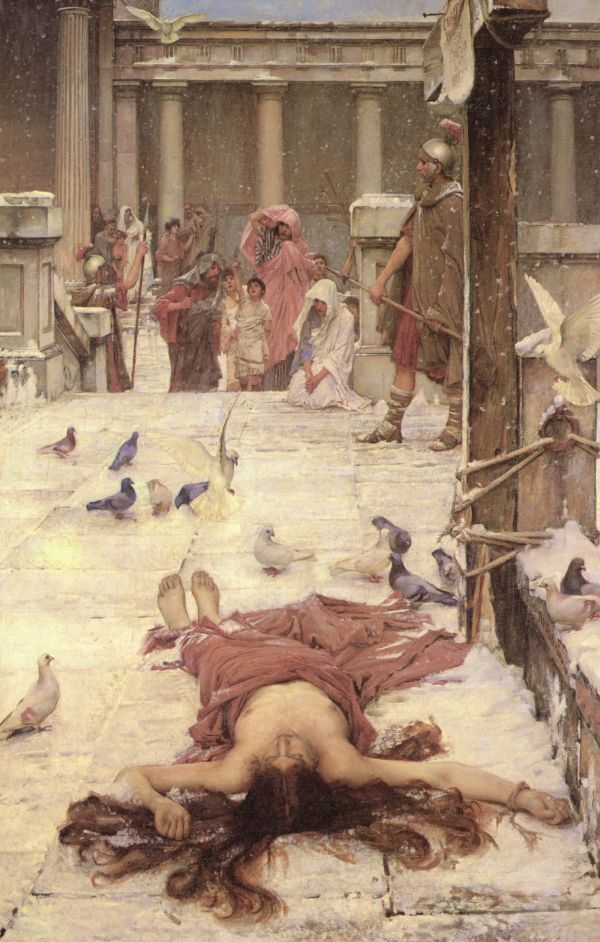(Jn 15:18-21)
In the preceding section, Jesus denotes the character of love between Him and the disciples, and mutual love between believers. Now he introduces the contrast with the world: the opposite of love.
In Jn the term «world» designates the sin structure resulting from the combination of religion-power-interest.
A kingdom that organises itself from ambitious individuals and interests consortia.
From the earliest times, the wrong-side, the opposite road, became constitutive of the «sons». In this way, the configuration of the kingdom was becoming alternative thing; a reversal.
The well-established and praised models did not distract sisters and brothers of Faith. The new assemblies educated everyone to gain confidence in personal Vocation.
Their experience, even mystical one, had another criterion compared to hosannas and leashed quietism.
In the fourth Gospel the ‘Church’ [Jn never uses the specific term, Εκκλησία] is in watermark the opposite of the «world».
The worldly spirit of official religiosity already hated the very friends whom Christ had drawn «from» those polluted waters:
«If you were from the world [...] For you are not from the world, but I have chosen you from the world, therefore the world hates you» (v.19).
The first experience of the Johannine communities in Asia Minor was persecution.
In event after event, the oppression suffered became normal for the believer ones, because that world there loved only "its" followers: «the world would love its own» (v.19), i.e. that and those in whom it recognizes itself.
Instead, by their living Faith, the friends of Christ remained 'intimate'; strangers to every apparatus.
In their choices and conduct, they reflected a unique convivial lifestyle - humanizing far more than any normal, servile beliefs.
With their action derived from inner strength alone, they prefigured a germ of non-conformist society. This, in comparison to the ideology of power - and its having-appearing.
In such a way, the Lord's brethren bore witness against «the sin of the world» (cf. John 1:29) just as the Lamb of God had done.
Although doomed for defeat, the true believers operated in an eccentric manner; never obsequious.
The detachment was with the official devotional structures, always deferential, cowardly; well disposed to the sacralization of established roles.
In short, the disciples of all times «know» the Son and the Father; the world ignores and disowns them (v.21).
So «There is no greater servant than his Lord» (v.20).
Believers drink from the same Chalice [cup], proclaim the same truths: they cannot have a better fate.
The intensification of evil-against is inevitable.
«All these things shall they do against you because of my Name» (v.21).
Jesus lived amidst denunciations, contrasts, animosities, persecutions, and died as a punished and reduced to shame rebel.
This is the reality of the «Name».
What can be expected differently from the heirs of his Word, from the bearers of the same Appeal that led the Master to be destroyed by the official authorities?
Yet the simple people of the earth have never rejected Him.
And now more than ever it is necessary for the vital germ of that calm and dramatic testimony to continue.
[Saturday 5th wk. in Easter, May 24, 2025]












